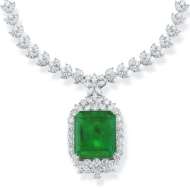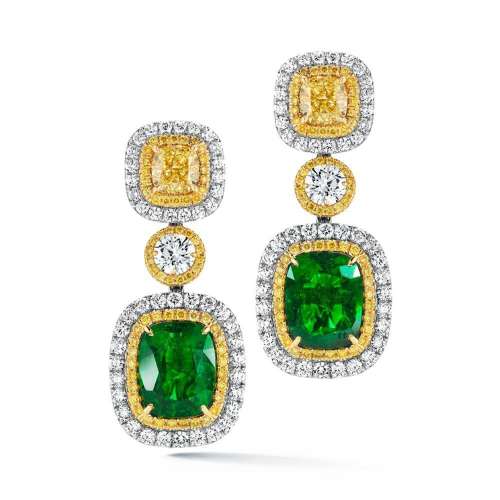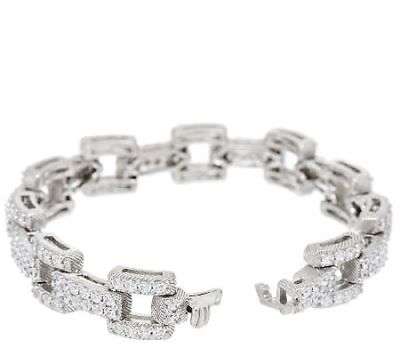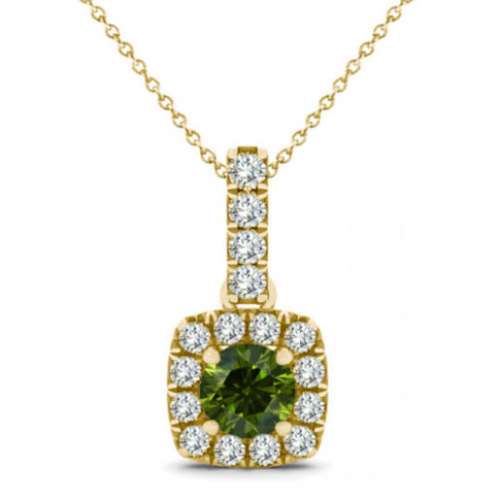
The Diamond District is a vibrant hub of luxury and elegance, attracting jewelry enthusiasts, collectors, and those seeking the perfect gift. However, with its allure comes the challenge of discerning authenticity in a sea of dazzling gemstones and intricate designs. In this guide, we’ll explore essential tips and techniques to help you identify authentic jewelry in Diamond District stores, ensuring that your investment is not only beautiful but also genuine.
Understanding the Diamond District
Before diving into the specifics of spotting authenticity, it's crucial to understand what the Diamond District represents. Located in major cities around the world, including New York City, the diamond district stores is a concentrated area where jewelers, wholesalers, and retailers converge. Here, you’ll find a vast selection of diamonds, gemstones, and fine jewelry, all competing for your attention.
While many businesses operate with integrity, some may use deceptive practices to sell counterfeit or lower-quality pieces. Therefore, arming yourself with knowledge and awareness is vital.
The Importance of Certification
One of the first steps in ensuring the authenticity of a diamond or piece of jewelry is checking for proper certification. Reputable diamonds come with a certification from a recognized gemological laboratory. The two most respected organizations are the Gemological Institute of America (GIA) and the American Gem Society (AGS).
What is Certification?
Certification is a comprehensive evaluation of a diamond’s quality based on specific criteria, including the four Cs: Carat weight, Cut, Color, and Clarity. A certificate serves as a guarantee of authenticity and can provide you with vital information about the stone's characteristics, helping you make an informed purchase.
Where to Check for Certification
When shopping in the Diamond District, ask the retailer to provide the certification for the diamond. Be sure to verify that the certificate matches the jewelry store online you are interested in. Most reputable dealers will have the certificate readily available, and they should be willing to explain the details to you.
Examining the Quality of the Jewelry
Beyond certification, examining the quality of the jewelry itself is crucial in identifying authenticity. Here are several factors to consider:
Craftsmanship and Setting
Inspect the craftsmanship of the piece. Authentic jewelry will show signs of high-quality workmanship, with smooth edges, secure settings, and no visible flaws. A well-crafted piece should feel substantial and not flimsy or overly lightweight.
Metal Quality
The metal used in the setting should also be examined. Look for hallmarks stamped inside the band or on the clasp, indicating the metal's purity. Common stamps include "14K," "18K," or "925" for sterling silver. If you can’t find any markings, it might be a red flag regarding the metal’s authenticity.
Gemstone Clarity and Brilliance
For gemstones, inspect the clarity and brilliance. Authentic diamonds should exhibit a sparkle and fire that captures light beautifully. Use a jeweler's loupe or magnifying glass to check for imperfections. Keep in mind that most natural diamonds will have minor inclusions, but if the stone appears overly flawless, it may be synthetic or enhanced.
Asking the Right Questions
Engaging with jewelers and asking questions can significantly help you spot authenticity. Here are some important questions to consider:
Where is the Diamond Sourced?
Reputable jewelers should be able to trace the origin of their diamonds. Ethical sourcing is vital in today’s market, and many consumers are interested in conflict-free diamonds.
What Enhancements have been Made?
Ask about any treatments or enhancements the diamond district jewelers may have undergone. Many diamonds are treated to improve clarity or color, and while this isn’t inherently bad, knowing about it is essential for understanding the value of your purchase.
Return Policy and Warranty
A trustworthy jeweler will offer a return policy and warranty on their pieces. This indicates confidence in the quality of their products. Be wary of sellers who do not provide this, as it may suggest they are not fully invested in their merchandise's authenticity and quality.
Utilizing Technology
Technology has significantly advanced the way we can verify the authenticity of diamonds and jewelry. Consider the following tools:
Diamond Testers
A diamond tester is a small, handheld device that can help distinguish between diamonds and other gemstones. It measures thermal conductivity to determine if the stone is genuine. While these tools are not infallible, they can provide additional reassurance when evaluating a diamond.
Apps and Online Resources
There are numerous apps and online resources designed to help consumers educate themselves about diamonds and gemstones. Some apps even allow you to scan a diamond's certificate to verify its authenticity. Take advantage of these resources to further inform your purchase.
Recognizing Red Flags
While most jewelers in the good online jewelry stores are reputable, it's essential to be aware of potential red flags:
Lack of Transparency
If a jeweler is unwilling to provide information about the diamond's certification, origin, or enhancements, it may indicate a lack of authenticity. Transparency is key when making significant investments in jewelry.
Unusually Low Prices
If a deal seems too good to be true, it probably is. Authentic diamonds and high-quality jewelry come at a price, and significant discounts may signal inferior quality or counterfeit products.
High-Pressure Sales Tactics
Be cautious of salespeople who pressure you to make a quick decision. A reputable jeweler will understand the importance of taking your time to make an informed choice.
Building Relationships with Jewelers
Establishing a relationship with trusted jewelers can also enhance your experience in the Diamond District.
Do Your Research
Before making a purchase, do your research on local jewelers. Read reviews and testimonials from previous customers. Trusted jewelers often have a solid online presence with positive feedback.
Visit Multiple Stores
Take the time to visit several stores to compare prices, quality, and customer service. This not only gives you a better understanding of the market but also helps you find a jeweler you feel comfortable with.
Ask for Recommendations
Don’t hesitate to ask friends, family, or acquaintances for recommendations. Personal experiences can lead you to reputable jewelers who have a track record of authenticity and customer satisfaction.
Understanding Pricing
Understanding the pricing of diamonds and jewelry is another critical aspect of spotting authenticity.
Know the Market Value
Familiarize yourself with the market value of diamonds based on the four Cs. Numerous online resources provide price ranges for different qualities and sizes of diamonds. This knowledge will help you gauge whether a price is fair.
Avoid Emotion-Driven Purchases
While jewelry is often an emotional purchase, it's important to remain level-headed when evaluating prices. Avoid making decisions based solely on emotional impulse, as this can lead to overspending or purchasing subpar items.
Seeking Professional Appraisals
If you're unsure about the authenticity of a piece, consider seeking a professional appraisal.
Why Get an Appraisal?
An appraisal provides an expert evaluation of the jewelry’s quality and value. A qualified gemologist can confirm the authenticity of a online diamond ring store and provide you with a written report, which is particularly useful for insurance purposes.
Finding an Appraiser
Look for certified appraisers who are members of professional organizations, such as the American Society of Appraisers (ASA) or the National Association of Jewelry Appraisers (NAJA).
Navigating the Diamond District can be an exhilarating yet daunting experience, especially when it comes to ensuring authenticity. By understanding the importance of certification, examining quality, asking the right questions, and being aware of red flags, you can confidently identify genuine pieces that reflect true craftsmanship and beauty.
Building relationships with trusted jewelers, conducting thorough research, and seeking professional appraisals can further enhance your experience. Remember, investing in authentic jewelry is not just about acquiring a beautiful piece but also about making a wise investment that can last a lifetime.
In the Diamond District, authenticity shines as brightly as the diamonds themselves. With this guide in hand, you’re now equipped to spot authenticity and find the perfect piece that resonates with your style and values. Enjoy your journey through this dazzling world, and may you discover treasures that you’ll cherish for years to come.

























